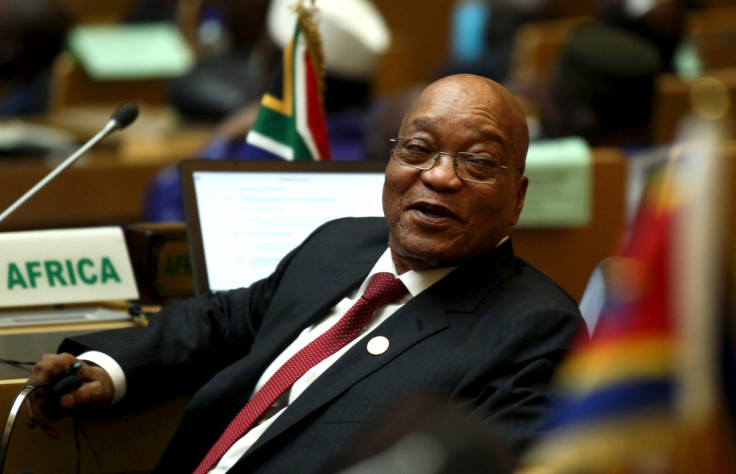Jacob Zuma could face 783 corruption charges as 2009 arms deal ruling set aside by High Court

South Africa's High Court in Pretoria has ruled that the decision to drop 783 corruption charges against Jacob Zuma in 2009 was "irrational" and did not follow correct procedure. With the ruling set aside, the National Prosecuting Authority (NPA) will now decide whether to reinstate the charges or not.
The charges were withdrawn by then Director of Public Prosecutions Mokotedi Mpshe on grounds of alleged political interference in the case, related to a multi-billion-dollar arms deal. Mpshe made the decision after the emergence of recorded phone conversations, submitted as evidence in the case – the so-called 'spy tapes'.
The controversial decision came a few months before the 2009 general election that saw Zuma emerging as president. The main opposition Democratic Alliance (DA) brought the motion to reinstate the charges.
Deputy Judge President Aubrey Ledwaba said the decision to drop the charges was irrational: "We find that Mr Mpshe found himself under pressure, and consequently made an irrational decision. The DA's application succeeds. The decision of first respondent in 2009 to discontinue prosecution is reviewed and set aside."
#SpyTapes Mpshe's feelings of anger and betrayal caused him to act impassively and irrational - Ledwaba
— Nomsa Maseko (@nomsa_maseko) April 29, 2016
#SpyTapes Mpshe's conduct shows he did not have the authority to take the decision to drop charges against accused - Ledwaba
— Nomsa Maseko (@nomsa_maseko) April 29, 2016
The ruling came as Zuma is facing mounting pressure and has been urged to step down following growing discontent and allegations of corruption. The president is accused, among other things, of having close ties with the controversial Gupta family who are accused of wielding excessive political influence in the country. The Gupta family denies the allegations.
Earlier in April, a commission of inquiry set up by Zuma cleared of any wrongdoing people implicated in the controversial deal, that enabled the ruling party African National Congress (ANC) to purchase weapons to modernise the country's defence force. Announced in 1999, it was the largest arms deal since the end of apartheid in 1994 and it involved several European companies. Zuma was dismissed as deputy-president in 2005 after his former financial adviser Schabir Shaik was convicted of corruption over the 1999 deal.
Zuma was also at risk of being impeached in April after the country's Constitutional Court ruled the leader and the National Assembly breached the constitution for failing to repay state funds used to renovate Zuma's Nkandla private residence, in KwaZulu-Natal province.
© Copyright IBTimes 2025. All rights reserved.






















